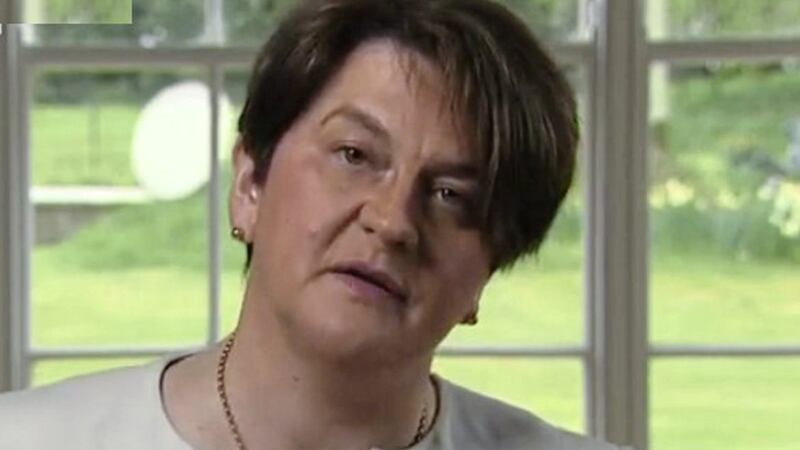The DUP’s Brexit day of reckoning has finally arrived, although sacking Arlene Foster only marks the break of dawn. The party has yet to confront its responsibility for the Northern Ireland protocol and the impossibility of removing it. The putsch against Foster is to some extent a desperate avoidance of this issue, as there is clearly no internal consensus on a replacement or a new direction. The party’s support is now sliding in two opposite directions, to Alliance and the Traditional Unionist Voice. Any new leader who cannot bring back both - a task that looks as difficult as removing the protocol - will have to pick one over the other. This will split the DUP’s vote, perhaps putting it behind Sinn Féin and even Alliance, on first preferences if not assembly seats. Then the day of reckoning will reach high noon.
**
Given that the DUP faces electoral disaster, a Stormont election is the last thing it wants. Sinn Féin is also in no hurry for a trip to the polls - its predicted seat losses are worse than the DUP’s.
Speculation on devolution collapsing is understandable amid political turmoil and of course a collapse could happen by accident. However, some of this speculation appears motivated by unionist hopes of wrecking the protocol or nationalist hopes of hastening a united Ireland. These notions belong in Jamie Bryson’s wheelie bin or the Felons Club in January 2017.
The lesson of the past three elections is that an executive collapse causes voters to punish those they hold responsible, until the executive is restored.
**
Given all the issues with Arlene Foster’s leadership, it seems extraordinary that her abstention over a ban on gay conversion therapy would be cited by many DUP representatives as a final straw. In the circles in which those representatives mix, however, the prospect of ban immediately recalled the 2016 prosecution of pastor James McConnell for broadcasting a sermon criticising Islam.
There was enough horror at this to require mollification. When you are as small and specialist an organisation as the DUP, prosecution-fearing pastors are a notable constituency.
**
Sinn Féin has asked its Derry MLAs Martina Anderson and Karen Mullan to consider standing down, as part of a restructuring effort in the city following an electoral collapse.
This is a difficult moment for the party and is likely to be far more fraught behind the scenes than reported. But it is hard not to compare Sinn Féin’s ruthless discipline to Arlene Foster’s interminable inability to rein in a few MPs.
There is no guarantee Foster’s successor will get on top of this problem. It may even get worse, as certain people have their hopes of influence raised, only to be disappointed.
**
Unionist parties are mounting a high concept legal challenge against the Northern Ireland Protocol, claiming it breaches the Act of Union.
A case at Belfast Magistrates Court feels like it might be more significant. Stormont’s department of agriculture was ordered to release four ponies held for a month over errors in veterinary paperwork when they arrived on the Liverpool ferry.
District Judge George Conner said: “I see no virtue in sending the animals back to Scotland or any other place on the mainland just to teach someone a lesson in form-filling.”
The EU might disagree but as this verdict shows, running the sea border is entirely under UK jurisdiction. The EU cannot complain of UK insincerity, as the department - under DUP minister Edwin Poots - argued at court to continue keeping the ponies in custody.
Perhaps this is how may more sea border arguments will be resolved.
**
Secretary of state Brandon Lewis has been accused of being “utterly disrespectful” for refusing to spell out conditions under which he would call a border poll.
The accusation was made by Prof Colin Harvey, a lecturer at Queen’s University Belfast’s School of Law and a board member of campaign group Ireland’s Future.
Harvey has been writing to Lewis and the Northern Ireland Office has repeatedly written back, explaining the Court of Appeal ruled last year that criteria do not have to be specified, beyond the Good Friday Agreement requirement of considering a nationalist victory likely.
In truth, this explanation is respectfully restrained.
Both the original court and the appeal court dismissed the same question, put to them by victims campaigner Raymond McCord. Both found the agreement deliberately omitted criteria to allow for “political judgment” and “the constitutional value of flexibility.”
**
UUP health minister Robin Swann has told the assembly “there is no plan, hidden or otherwise, to close, downgrade or run down any hospital”.
The remark came during a debate on restoring accident and emergency services at Downpatrick, which were relocated due to Covid.
The executive does have a plan to rationalise health services into regional specialist centres. Adopted from the 2016 Bengoa Report, this is often described as closing small hospitals, so it is worth remembering the official title of the Bengoa Report is ‘Systems not Structures’. In other words, buildings may remain while services are rearranged within them. What the words ‘close’, ‘downgrade’ and ‘run down’ mean is open to interpretation.








